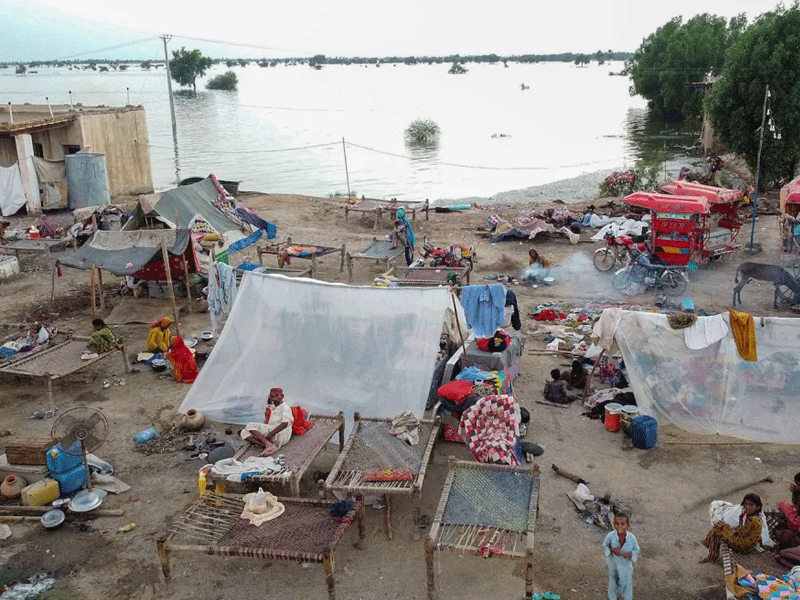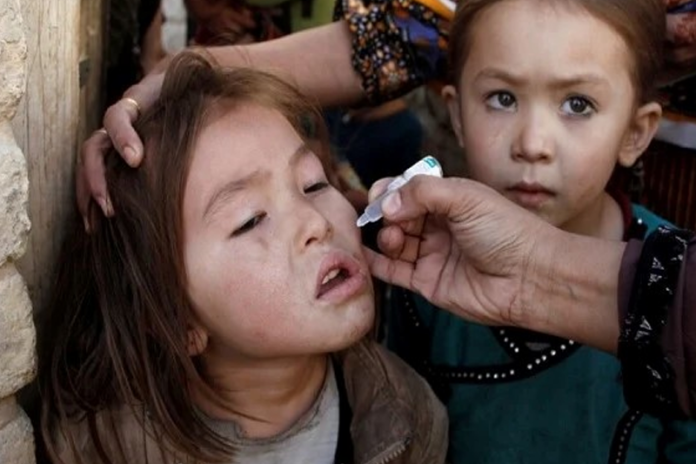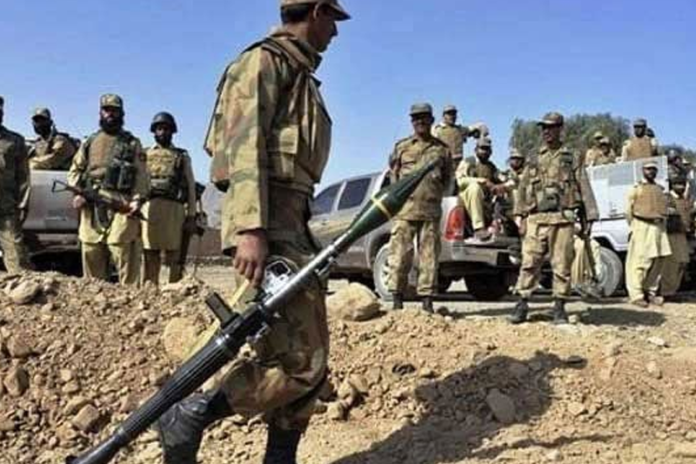Fresh floods: relief work very slow due to economic crisis

- 226
- 0
At a time when Pakistan is suffering from many problems including economic depression, India's water aggression has made the situation more serious. By the way, heavy rains have caused damage in the entire country, but there is a high level of flood in the river Sutlej and India has also opened the doors of its reservoirs without notice.
Due to this, hundreds of villages in seven districts of Punjab located around the Sutlej have been submerged in water. And there is destruction everywhere. The districts and adjacent areas badly affected by the floods include Bahawalpur, Bahawalnagar, Pakpattan, Kasur, Wahari, Multan, Sahiwal, Rajanpur, Khanewal, Leh, Lodhran, Okara etc.
The Disaster Management Authority has predicted more rains, which is likely to worsen the situation. So far, 128,000 flood-affected people have been shifted to safer places in Bahawalpur alone. Cattle are apart from this. Many villages are completely submerged in water. Several safety dams have been breached. Standing crops on millions of acres of land are under water. Cotton, wheat and fodder crops have been severely damaged. Ganda Singhwala, Wahari and other places near Kasur are reporting that the water flow is increasing with the passage of time.
According to the Meteorological Department, the rains will continue next month, which will cause water in all the rivers, causing problems for human populations and crops.
So far, around one million people have been evacuated from the flood-affected areas to safer places. Relief camps have been set up to provide them with food and shelter. Boats are being operated to transfer the victims, on which 1000 rescue workers are deployed. 95 medical camps are established in different areas to deal with health problems. Ambulances are also being run to help the victims and rescue 1122 has been activated.
Relief operations are ongoing for the flood victims which are less than required and the victims have complained that they are suffering from various problems due to inadequate assistance. They have left their homes but electricity bills are still being sent to them. Many people have also complained of inadequate support and attention from the government level.
The dams that the farmers had built under your help to protect their crops, houses and livestock from floods could not withstand the rush of water and broke, causing great destruction. There is no doubt that the local administration is active in helping the victims, but a lot more needs to be done to alleviate their hardships. It is imperative that a regular fund be established to compensate the victims. More attention should be given to providing them shelter and food and provision of fodder for livestock.
Floods occur every year due to rains, but this time there has been a little more water than usual.
From above, India acted maliciously and did not comply with the Indus Basin Agreement and continued to release water from the reservoirs, causing great damage to people, livestock and crops. Realizing this situation, the government should speed up relief activities so that the problems of economically distressed people can be reduced. Philanthropists should also give generous donations to the relief camps.
As a matter of fact, tough days are ahead for the flood victims as the floods situation has been prevailing while the delivery of relief goods is not in accordance with the requirements of the situation. Since the floods were unprecedented in nature as last year, the government cannot alone provide relief to the victims while the aid pledged by international donors used to arrive late as was seen last year.
In fact, there was a huge gap between the pledges made by international community to help the flood victims and the assistance delivered to Pakistan last year. The situation on the ground is very pathetic an estimated one and half lakh small farmers are facing extreme hardships during the current crop planting season, the provision of seeds and animal fodder for affected households is also a serious issue. Meanwhile, the National Flood Response Coordination Centre (NFRCC) joint survey report has put the flood damages in billions in Punjab and others districts of the rest of provinces. In this backdrop, the crisis of food shortage is going to worsen in the country. Already the prices of essential kitchen items like onion, tomatoes, potatoes and other vegetables are beyond reach of the common man. Pakistan's current grains production is projected to be less by more than thirty per cent for next year, posing a serious danger of further aggravating the food shortage issue in the country which is already reeling under the effects of the rupee's depreciation and inflation. We have been noticing a marked decrease in cultivation area, high prices of fertilizers, and the water issues in the country and now with the flash floods, the situation is totally out of control. It is pertinent to be mentioned here that the Pakistan Economic Survey has also pointed to the wheat and other food grains crisis in the country due to the low production of wheat and damage by flash floods for the next year.
The wheat production forecast is said to be at around 27 million tonnes, which means 4.5% less production as compared to that of last year. The irony is that wheat is our staple food and sixty per cent of our food intake consists of wheat flour. The irony is that country is passing thorugh worst economic crisis and the fresh floods are matter of serious concern. We have still not recovered from the last year floods, and the fresh floods can push the nation to brink of catastrophe. It may be recalled here that millions are living in make-shift arrangements like tents etc are exposed to various health risks and difficulties.
The UN and other world bodies should pay attention to the damages caused by the fresh floods in Pakistan.
Published in The Daily National Courier, August, 30 2023
Like Business on Facebook, follow @DailyNCourier on Twitter to stay informed and join in the conversation.

















































